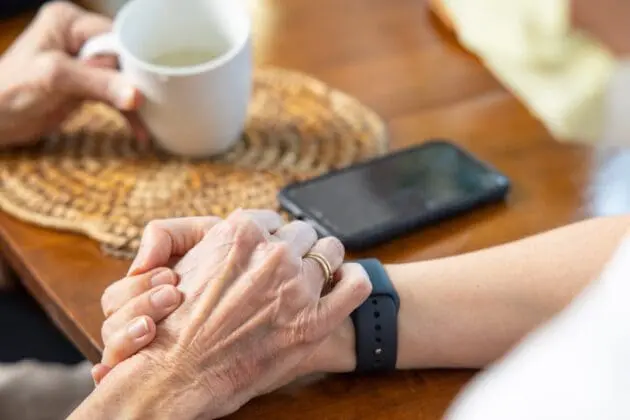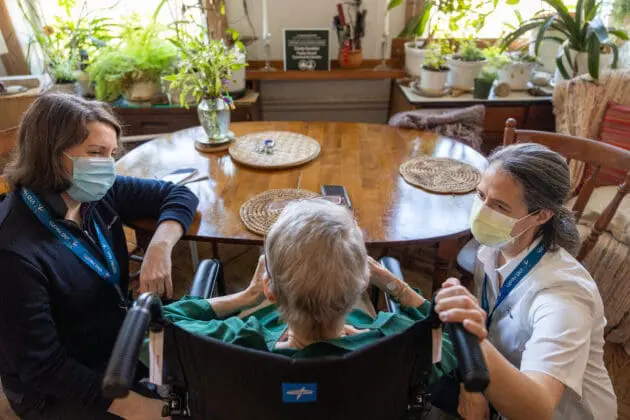People with an advanced illness may feel shortness of breath, which can cause discomfort and distress. If it is not managed, they may panic.
Tell your hospice care team right away if your loved one feels short of breath.
Tips for Preventing Shortness of Breath
- Help your loved one save their energy by placing often-used items near their bed or chair.
- Make sure they use inhalers as ordered — 15 to 30 minutes before planned activities.
- Suggest that they devote some time every day to relaxing or meditating.
- Let their doctor or a hospice care team member know about things that may be causing anxiety.
COPD can significantly impact a person’s quality of life as the illness progresses. VNS Health’s specialized hospice care for people with advanced COPD offers the right level of care when they need it most.
Tips for Easing Breathing
- Keep the room cool. Open a window, turn on the air conditioning, or put a bowl of ice in front of a fan. Aim the fan at the face and upper body.
- Change your loved one’s position. Help them sit up higher, at a 30–45 degree angle, or help them turn on one side.
- If one lung or side hurts more than the other, suggest that they lie with that side down.
- Coach your loved one to take slow, deep breaths and focus on relaxing.
- Apply cool cloths to their face.
- Loosen any clothing that appears to be tight or constricting, especially around the neck and chest.
- If your loved one uses oxygen, check the mask and tank to make sure that the flow rate is correct and that the tubing is not kinked.
- Make the room quieter. Lower the volume of music or the TV, and encourage family members to speak softly.
- Provide a distraction like music, reading material, or comfort foods.
- Arrange the bed or chair so your loved one can see out a window.
- Give medicine for shortness of breath, as directed by a hospice nurse or doctor.


